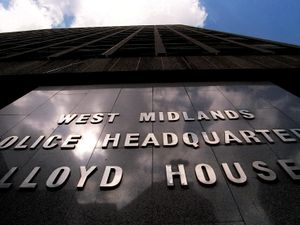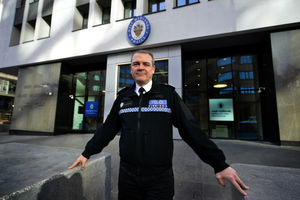Express & Star special report: Serious failings revealed in damning verdict on West Midlands Police
Serious failings have been laid bare at West Midlands Police as a damning report highlights a catalogue of criticism.

West Midlands Police has been criticised for failing to protect vulnerable people from harm, the report revealed.
Today the Express & Star analyses the report in-depth and brings you more reaction to its findings.
The force was given a third tier rating of ‘requires improvement’ for its overall effectiveness by HM Inspectorate of Constabulary, dropping down a grade from last year.
KEY POINTS:
Among worst in UK for responding to 999 calls
Failed to identify a suspect in more than six out of ten investigations
Serious failings in protecting vulnerable people
Slow response times
Children and domestic abuse victims left at risk
Only one in eight crimes results in a suspect being charged
Missed opportunities to secure evidence
2,400 'open' crime logs
The report found that the force failed to identify a suspect in more than six out of ten investigations and that only one in eight crimes resulted in a suspect actually being charged. Meanwhile Staffordshire Police was rated ‘good’ overall, although it was criticised for failing to answer 10 per cent of 101 calls each day.
Take our police survey:
The report by HMIC said WMP was among the worst in the country for responding to 999 calls and had 2,400 ‘open’ crime logs at the time of the inspection.
Inspectors also noted that risk assessments for domestic abuse offences were 37 per cent below the national average, and that vulnerable victims were being put at risk by slow response times.
'Vulnerable victims put in danger'
West Midlands Police and Crime Commissioner David Jamieson said the grade was ‘disappointing’ but reflected the high levels of demand the force had been placed under over the year.
Inspectors found ‘serious failings’ in WMP’s ability to protect vulnerable people, giving the force the lowest possible rating of ‘inadequate’.
The report said there was often a lack of available officers to respond to incidents quickly enough, meaning victims – including children and domestic abuse victims – may be put in danger.
The force was missing chances to secure evidence as a result, the report added, which could undermine the quality of its investigations. It was noted that following the inspection, WMP had taken steps to address these concerns and HMIC said services had improved as a result.
The report also identified that there is room for improvement in the way the police force categorises people as missing or absent, and in the initial investigation of missing persons cases.
While WMP’s approach to safeguarding was rated ‘good’, a lack of resources meant it is not always carried out quickly enough.
The report recognised that many of these issues emerged due to a period of extreme demand in the West Midlands during last summer. It received a ‘good’ grade for preventing crime and tackling anti-social behaviour; for investigating crime and reducing re-offending, and also for tackling serious and organised crime.

West Midlands Police Chief Constable Dave Thompson said the grade given to the force was ‘completely due’ to call backlogs the force had experienced during and after the busy summer.
He added that due to low funding levels and scant resources: “We should be under no illusion we are having to run harder and faster than many other forces.”
Crime went up across the region by 14 per cent in the year up to June 2017, with huge spikes in violent crime, weapons offences and burglary.
HMIC carry out annual assessments judging all 43 police forces in England and Wales for effectiveness.




